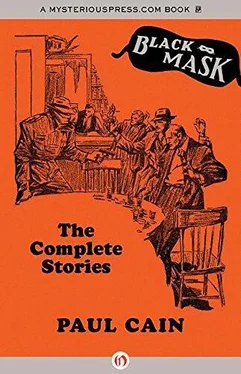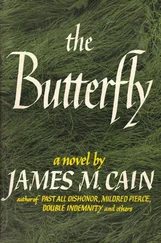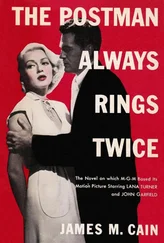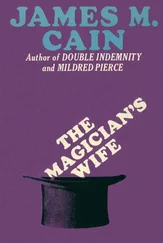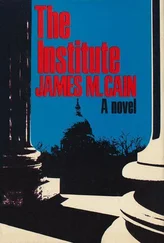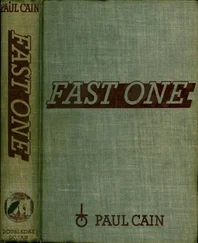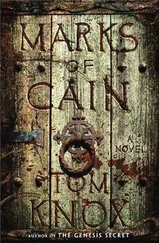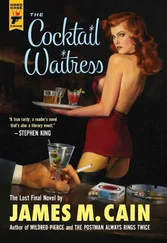Kells leaned back in the corner, was silent.
As they neared the bridge south of Malibu, Granquist slowed a little. There was someone swinging a red lantern in the middle of the road. Then she pressed the throttle far down, veered sharply to the left past a car that was parked across the road.
She glanced back in a little while and saw its lights behind her, pressed the throttle to the floor.
The road curved a great deal. Granquist was bent forward over the wheel and the rain beat against her face; her eyes were narrowed to slits against the wind and the rain.
There was the faint sound of a shot, two, behind them, a metallic thud as a bullet buried itself somewhere in the body of the car.
Kells opened his eyes, turned to look back. He grinned at Granquist and his face was whiter than anything she had ever seen. He glanced ahead, said: “Give it hell, baby.” Then he groped in his pocket, pulled out the big automatic. He smashed the glass of the rear window with the muzzle and rested the barrel on his forearm. He sighted and fired.
He swore softly. “Missed,” he said.
He fired again, and as the car behind them swerved crazily off the road and stopped. “Bull’s-eye.” Kells laughed soundlessly.
They passed two cars going the other way. Kells, looking back, saw one of them stop and start to turn around. Then they went around a curve and he couldn’t see the car any more.
He glanced at the speedometer. “You’ll have to do a little better. I think there’s a fast one on our tail now.”
She said: “The curves...”
“I know, baby — you’re doing beautifully. Only a little faster.” He smiled.
Granquist asked: “How’s the cough?”
“Swell — I can’t feel it any more.” He patted his chest. “I feel a lot better.”
She braced herself and used the brake hard as they went around a sharp curve.
“There’s a pint of Bourbon in the side pocket. We got it from Jake back at the trick speakeasy...”
Kells said: “My God! Why didn’t you tell me about it before?” He reached for the bottle.
“I forgot...”
She jerked the wheel suddenly, hard, screamed between clenched teeth.
Kells felt the beginning of the skid; he looked outward, forward into blackness. They were in space, falling sidewise into blackness; there was grinding, tearing, crashing sound. Falling. Black.
There was a light somewhere. There was a voice.
Kells moved his arm an inch or so, dug his fingers deep in mud. The rain beat hard, cold on his face.
The voice come from somewhere above him, kept talking about light.
“I can’t get down any farther,” it said. “We got to have more light.”
Kells tried to roll over on his side. There was something heavy on his legs, he couldn’t move them, couldn’t feel them. But he twisted his body a little and opened his eyes. It was entirely dark.
He twisted his body the other way and saw the broad beam of a flashlight high above him in the darkness. The rain looked like snow in the light.
He pushed himself up slowly, leaned on one elbow, saw something white a little distance away. He got his legs, somehow, out of the dark sharp metal that imprisoned them and crawled slowly, painfully, towards the whiteness.
The whiteness was Granquist. She was dead.
Kells lay there awhile in the mud, on his belly, with his face close to Granquist’s face.
He could not think. He could feel the awful, barbed pain in his body; after a while, fear. He looked up at the light and a wave of panic swept suddenly over him, twisted his heart. He wanted to go into the darkness, away from the light. He wanted the darkness very much.
He kissed Granquist’s cold mouth and turned and crawled through the mud away from the light, away from the voices.
He wanted to be alone in the darkness; he wanted the light to please go away.
He whispered, “Please go away,” to himself, over and over.
The ground was rough; great rocks jutted out of the mud, and there were little gullies that the rain had made.
After a while he stopped and turned and looked back and he could not see the light any more. Still he crawled on, dragged his torn body over the broken earth.
In the partial shelter of a steep sloping rock he stopped, sank forward, down.
There, after a little while, life went away from him.
The novel Fast One was originally serialized in Black Mask magazine in five episodes between March 1932 and September 1932. These five related tales attracted intense comment by both Black Mask magazine readers, and by its writers, all of whom recognized that these stories represented a kind of culmination of the hardboiled style upon which Black Mask ’s fame rested.
In the years following the serialization of Fast One , especially in the wake of comments by Dashiell Hammett and Raymond Chandler, the literary masters of the Black Mask narrative, Paul Cain’s achievement became recognized as something more than merely the toughest, most compact, and visceral example of Black Mask story-telling.
None of Cain’s contemporaries, however, was able to explain very specifically why Fast One cast such memorable power as a crime story narrative. Looking back after eighty years of refinement in the formulas of American popular entertainment, especially those tales of the rise of urban crime initiated by Black Mask writers, we can now see that Cain’s attitude, and the attitude of the protagonist couple who navigate all the corrupting forces of action in Fast One , foreshadow the detached, poised, and disengaged, self-reliant persona that has emerged in twentieth century American film, song, and popular fiction as the essential American hero, who faces death and corruption with poise in a morally compromised American society.
Fast One is one of the first American novels in which the anti-hero exists on the edge of annihilation merely for the gamble and joy of living to the fullest in the present moment while all around him lesser characters lead lives of desperate greed and corrupt plotting. Though Cain’s novel has no moral center, and though all its characters are flawed, Cain’s anti-hero Kells is never greedy for personal, material gain, or for political power.
What the Black Mask crime story tradition had already established in American writing when Cain debuted with the first installment of Fast One was the violently corrupted urban landscape of major American cities under siege from many different outlaw forces of political and commercial crime.
What Cain brought to this tradition with Fast One and his other Black Mask tales, was a varied array of heroes and anti-heroes from hard-boiled detectives, stunt-men, and Hollywood studio trouble-shooters to grifters, goniffs, reporters, and even to an elegant retired judge who all exhibited a kind of amoral gambler’s grace in the face of the constant threat of moral and physical annihilation.
This disengaged, existential Cain hero is not a Carrol John Daly vigilante, nor a complex professional Dashiell Hammett lawman, nor an elegantly voiced Raymond Chandler romantic. These classic Black Mask models for hard-boiled heroes no longer easily serve today’s entertainments.
Perhaps the amoral vision that Cain presents in the casual death-defying behavior of his protagonists is the reason that some readers, and some critics, still find Cain’s crime writing disturbing. Perhaps not, since it is just this behavior, and thinking, that made the “deranged” and suicidal L.A.P.D. Sergeant Riggs, the lethal weapon of the eponymous 1987 film so appealing to a huge, contemporary audience.
That Cain could have entered crime writing “on his feet running” with his first published work is a stunning achievement.
Читать дальше
